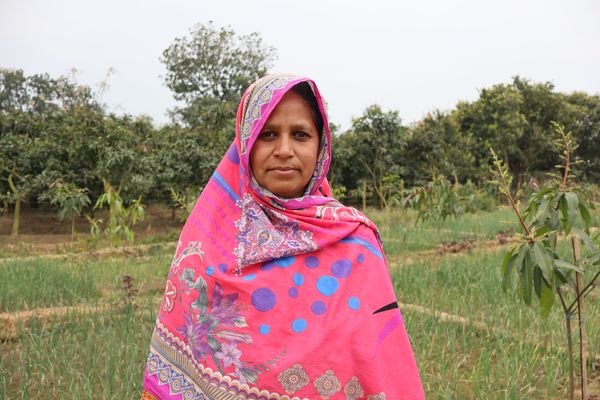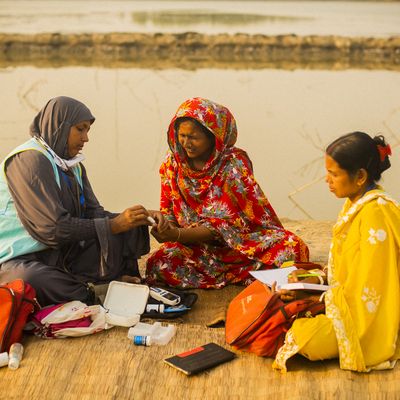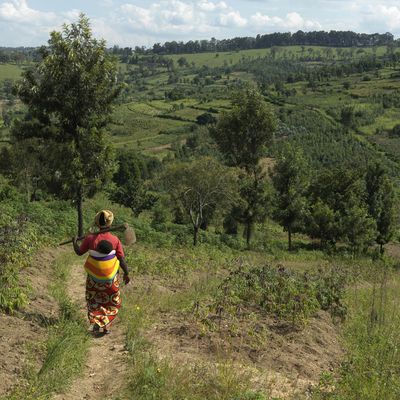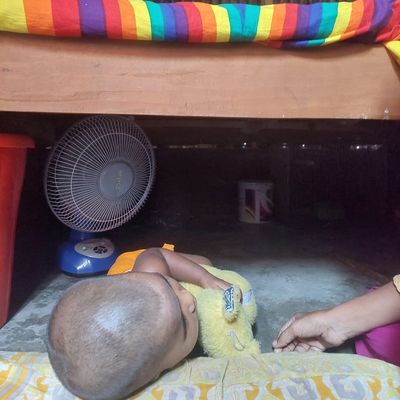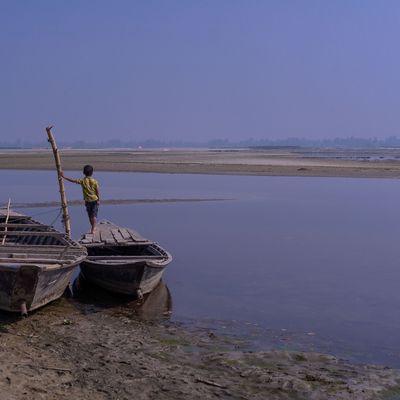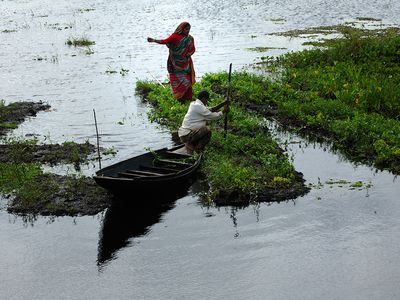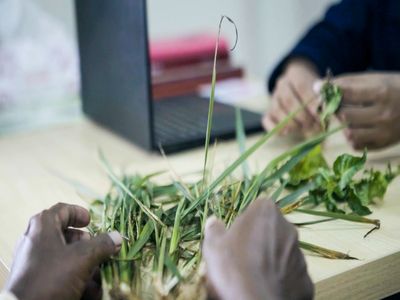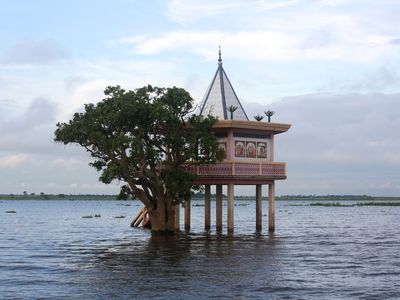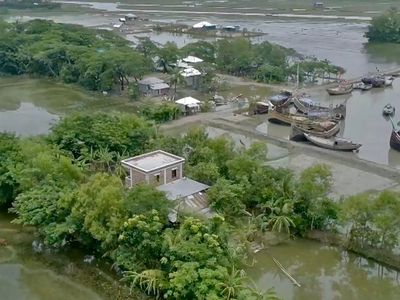Unequal burden of climate impacts
Half the world now lives in countries highly vulnerable to climate impacts. Inequity, poverty and limited access to basic services not only heighten sensitivity to those impacts, but also constrain the ability of communities to adapt.
BRAC’s locally led solutions for climate resilience
BRAC has half a century of experience working directly with people and communities on the frontlines of climate change. Our primary focus is strengthening the ability of communities to adapt, through locally-led and nature-based initiatives such as climate-resilient agriculture, soil regeneration, housing, access to safe water, agroforestry, crop insurance and climate forecasting.
We have a particular focus on working with smallholder farmers, who produce most of the food in South Asia and Africa, and mostly live in countries considered highly vulnerable to climate change
Our impact

16,000
women received appropriate adaptive solutions in Bangladesh to address the impacts of climate change in 2024

185,431
farmers across Bangladesh were provided with climate-adaptive training from 2019-2024

950,000
farmers reached across six countries, providing inputs, building adaptive capacity of smallholder farmers to climatic shocks. 65% are women.
How are people adapting to survive at the climate frontlines?
BRAC's Big Bet
The Big Bet is BRAC’s bold, multi-country initiative to mobilize major investment and partnerships that empower nearly two million women smallholder farmers to lead climate change adaptation
